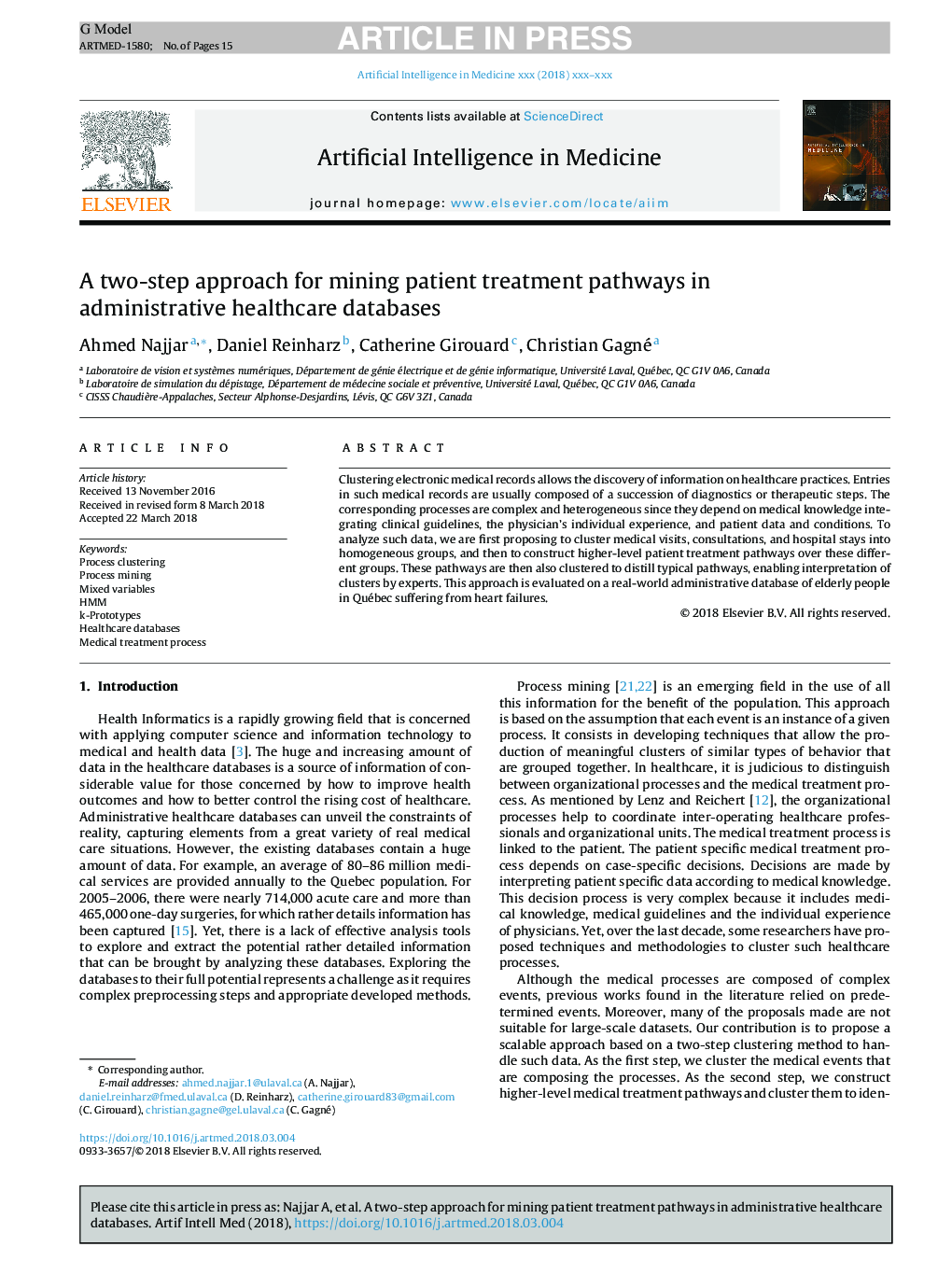| Article ID | Journal | Published Year | Pages | File Type |
|---|---|---|---|---|
| 6853303 | Artificial Intelligence in Medicine | 2018 | 15 Pages |
Abstract
Clustering electronic medical records allows the discovery of information on healthcare practices. Entries in such medical records are usually composed of a succession of diagnostics or therapeutic steps. The corresponding processes are complex and heterogeneous since they depend on medical knowledge integrating clinical guidelines, the physician's individual experience, and patient data and conditions. To analyze such data, we are first proposing to cluster medical visits, consultations, and hospital stays into homogeneous groups, and then to construct higher-level patient treatment pathways over these different groups. These pathways are then also clustered to distill typical pathways, enabling interpretation of clusters by experts. This approach is evaluated on a real-world administrative database of elderly people in Québec suffering from heart failures.
Keywords
Related Topics
Physical Sciences and Engineering
Computer Science
Artificial Intelligence
Authors
Ahmed Najjar, Daniel Reinharz, Catherine Girouard, Christian Gagné,
